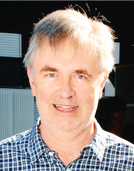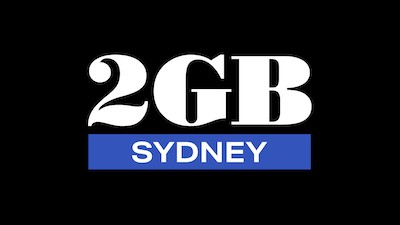How to Win the Ratings – The Breakfast Show Blueprint – Part 2

Greg Smith is a Director of Radio Today.
The key to ratings success is to build positive brand images. The smart thing to do is build them one at a time, bearing in mind the hierarchy that exists for musical & personality product attributes. In a previous article I wrote about the importance of winning the ‘Playing the best music for my taste’ attribute & also the mood service that the station provides.
In this series of articles I wanted to explore the equally important strategic position of owning the ‘Funny & Entertaining Breakfast’ hill. Kyle & Jackie O’s defection to KIIS has demonstrated the almighty power a great breakfast show can deliver to a station.
So how do you win ‘Funny & Entertaining Breakfast’? You can read part 1 here featuring Jon Coleman. Below is part 2.
Todd Wallace is a 40-year programming veteran – as a #1 jock, PD, GM, and station owner. Over the past 34 years, he has provided programming consultation services to over 100 radio stations. Internationally recognised as the “founding father” of the “callout” research concept, over 200 stations have used his systems of “in-house” music, tracking, and perceptual research.
.jpg) One of the questions I get asked most often these days deals with whether the old “tried and true” radio basics, as they apply to Breakfast Shows, are still valid.
One of the questions I get asked most often these days deals with whether the old “tried and true” radio basics, as they apply to Breakfast Shows, are still valid.
Here in North America, the introduction of PPM ratings technology (Portable People Meter measurement by Nielsen and BBM) has caused many programmers to question or re-think their stance on these basic programming truths.
What should be considered first and foremost are two facts:
1) A strong breakfast show or personality is one of the most-mentioned reasons listeners still cite, even today, for why they like listening to, or feel compelled to listen to, a radio station first thing in the morning, my all-time favourite radio adage, “win breakfast, win the war” still stands. When Mulray joined Triple M numbers spiked, when Wayne “The Poo” Roberts joined 4BC the station immediately began making boatloads of cash, and recently when Kyle and Jackie O switched stations, the new world order of Sydney radio ratings instantly changed.
2) Nearly all truly great radio stations have defining breakfast shows.
A strong brekkie show
- Can serve as a cume magnet, drawing listeners from other stations all over the dial (and even from other media)
- Can provide an effective promotional vehicle which helps recycle listeners into other dayparts
- Can be the “centre stage” for addressing community needs with outstanding, imaginative public service projects
- Can serve as an effective platform for sales promotions (in a way that couldn’t be supported in other music-driven dayparts)
- Can be utilized to “camouflage” increased commercial inventory before 9am so it doesn’t have to run in other dayparts where it may be more noticeable
Some programmers seem to think PPM means everything has changed. But the more you examine what really drives breakfast listening, the more you see the validity of maintaining a strong basics discipline.
My friend and colleague Country Consultant Jaye Albright put it this way in one of her recent internet Breakfast Blogs.
“Listeners still perceive and make use of radio in the same ways they always have. It’s the measurement techniques and the sample that changed, requiring new usage tactics and perceptual- driven strategies.”
With that in mind, let us proceed to look at the bigger brekkie basics and update some thinking to today.
Station Identification
You can be the funniest and/or most outrageous jock in the world, but it you don’t get proper credit in a Nielsen ratings diary, your numbers will never match your full potential. Even when being measured by PPM, regular reminders of who you are (call letters or brand name identifier) and what your address is (frequency) and what you’re famous for (“the new Country leader”) helps to remind a panellist of where and why they should return again every morning. That hasn’t changed.
Timechex
Breakfast listeners still largely listen the way they always have during their multi-tasked morning routine full of activities. Regular time-checks every 3 or 4 minutes help a listener maintain his/her body-clock without having to make a conscious effort to look at a clock or watch. (“I know when The Dirty Joke of the Day comes on, I need to be out the door”) A time-check can also a useful punctuator or segue-tool in the middle of live content. Double-time, digital followed by analog time (“6:43, that’s 17 before 7”) reinforces the fact you are providing the time-check. (Many listeners may not notice you’ve given the time if you only give single-time.) That hasn’t changed.
Weather
Listeners still want to know what elements they’ll be facing on their way to work/school/etc. You still can’t give weather often enough in the morning (as long as it’s concise). Current temp, sky- weather, and a capsule forecast of the next extreme high several times an hour. That hasn’t changed.
Humour
Even on a so-called “serious” station, something “magic” happens when you don’t take yourself so seriously. Most listeners still like hearing something that amuses them. Remember to keep humour positive (not degrading or poking fun at someone else’s expense). Funny is still funny. Most people like to laugh when they wake up. That hasn’t changed.
Features
Many listeners are feature-junkies, especially bedrock breakfast benchmarks. An effective feature can take what might ordinarily be just a throw-away line, joke, or concept, and give it new life in a way that cannot be ignored. Programmed at the same time every morning as a benchmark bit can generate a tune-in cuming-pattern just for a feature, which will have much longer time-spent-listening (diary) or time-spent-exposed (metered) benefits. Too often, PD’s or jocks tend to stop doing a feature long before its real “use by” date and sometimes end up throwing the baby out with the bathwater. As ancient as they may be to PD’s and jocks trying to stay on the cutting edge, “old” features like “the Mystery Oldie” or “the Joke Of The Day” or “Battle Of The Sexes” trivia can still be very entertaining to the average listener. That hasn’t changed.
Essential Information
When a listener wakes up, they want to know if the world is still there. And they expect an efficient summary of news they need to know. Enough of a story-count (of real news, not fluff) to bring them “up to date” is sufficient. (I suggest 6 quickies consisting of a clever grabber- headline and an explanatory follow-up sentence,) Plus traffic, weather, and sports-shorts. That hasn’t changed.
Topicality
What is today’s big local event? The thing that everyone will be talking about at work. It may not necessarily be “local” but it’s what locals are or will be buzzing about today. And keep it going all morning. Mentioning it once at 6:18 is not enough. You’ll have a new audience again by 6:55, and at 7:30, and at 8:15. That hasn’t changed
Music
The amount of music that should be programmed is largely dependent on how much truly great content is regularly prepared every morning. Some personalities or ensemble teams have so much excellent subject matter that listeners actually prefer to hear them rather than a song. But most shows benefit from scheduling music at least once or twice each quarter-hour as part of the breakfast entertainment mix. I caution clients against programming music-sweeps in a breakfast show. In my experience, most listeners don’t wake up clamouring sweeps, they’d rather hear a great bit or feature after a song plays, and a great song after great spoken word or produced content has played. That hasn’t changed.
So what HAS changed?
One way that the application of PPM measurement has changed breakfast shows in the States is that it has provided tangible proof to personalities and teams willing to dive deep into the numbers that brevity is indeed the soul of wit. Even that is an old concept that is still valid, even more valid, today!
Shows that have learned to get to the point fast and streamline their shtick have seen their numbers increase – often significantly – often very quickly. There was a time that some of those personalities just “started talking until they could finally think of something to say”. Now they’ve learned how to focus their content and improve their methods of show prep, often by hiring effective talent coaches like consultant Randy Lane of The Randy Lane Company.
The good news is that jocks who have educated themselves about what listeners will tolerate, minute- by-minute, find that when what used to be a 4-or-5-minute loosey-goosey rambling is transformed into a tight 2-minute efficient bit with a great payoff, there is a definite and immediate ratings benefit.
Bottom-line: You can never go wrong by making words work. And by getting morning personalities in the habit of scrutinizing every single bit and feature of their show.
Todd Wallace can be contacted via email here


